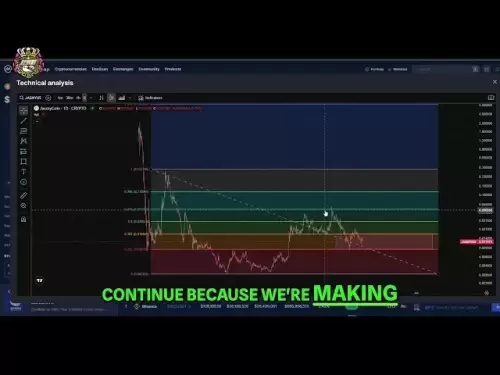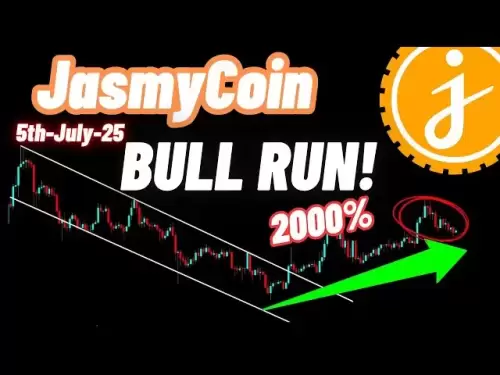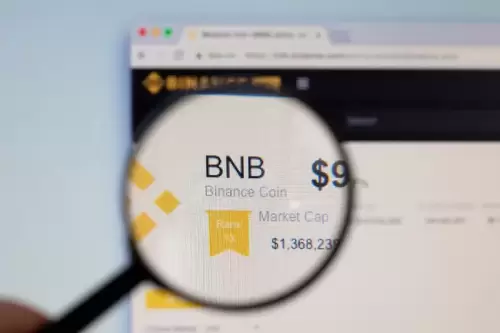 |
|
 |
|
 |
|
 |
|
 |
|
 |
|
 |
|
 |
|
 |
|
 |
|
 |
|
 |
|
 |
|
 |
|
 |
|
Cryptocurrency News Articles
Airdrops Have Become One of the Most Widely Used Methods for Token Distribution
Mar 24, 2025 at 12:13 pm
The report identifies two primary types of airdrops: Retroactive Airdrops that reward users for past actions without prior notification, and Engagement Airdrops

Airdrops have become one of the most widely used methods for token distribution in the cryptocurrency industry, but they are “certainly not without certain issues,” according to a new report by Binance Research.
The report, which was released on Thursday, identifies two primary types of airdrops: Retroactive Airdrops that reward users for past actions without prior notification, and Engagement Airdrops that announce qualifying actions in advance to attract new users.
Using sentiment analysis conducted with X’s Grok AI, the report evaluates crypto community reactions to recent airdrops.major failures include last-minute changes and unclear eligibility
The Binance Research report identifies several common mistakes that have damaged community trust in airdrops.
One of the most problematic practices is reducing community token allocations shortly before distribution.
The report cites Redstone’s March 2025 airdrop as an example, where the team cut the community allocation from 9.5% to 5% at the last minute, triggering “significant community backlash.” It further notes,
“Last minute changes to token allocations may result in discontent amongst a project’s community. They may also signal a lack of thought and planning, which could undermine the community’s trust in the project team.”
Another recurring issue involves unclear eligibility criteria that lead to “uneven rewards that don’t necessarily reflect user activity.”
The report points to Scroll’s October 2024 airdrop, which distributed 7% of its total supply but faced criticism for “arbitrary snapshot and hidden rules.”
Insider-heavy distributions also received criticism, with Kaito’s February 2025 airdrop highlighted for allocating 43.3% to team/investors and only 10% to the community.
The report also notes concerns about large allocations to influencers who “may choose to sell immediately, diluting the value for genuine users.”
The report adds that airdrops with broad token distribution and a focus on community engagement, such as Pudgy Penguins and Hyperliquid, drew the most favorable reactions from users.
In a collaboration with X’s Grok AI, Binance Research analyzed social media feedback on notable token distributions from the past year.
The resulting sentiment scores, ranging from 1-10, provide insights into what factors contribute to positive community reception.
Pudgy Penguins achieved the highest sentiment score (10) for its December 2024 airdrop.
The report also noted that “community expectations were largely met” and a “high percentage of token supply went to Pudgy Penguin NFT holders.”
Hyperliquid followed closely with a score of 9, praised for its approach of heavily rewarding “early adopters of the protocol.”
Other well-received airdrops included Berachain (8), ZKsync (8), and Grass (8), with common factors being strong community support, clear allocation rules, and appropriate rewards for early ecosystem participants.
In contrast, projects with the lowest sentiment scores included Redstone (2) and Scroll (3), with criticisms focusing on last-minute allocation changes and perceptions of excessive airdrop farming.
Recommendations For Improving Future Token Distributions
Binance Research offers three primary recommendations for projects trying to improve their airdrop processes.
One is increasing focus and transparency, improving community involvement, and implementing better monitoring tools to prevent exploitation.
For transparency improvements, the report distinguishes between approaches suitable for different airdrop types.
With Retroactive Airdrops, projects should “ensure distribution metrics are clearly communicated to user bases before airdrops are made claimable” and maintain continuous communication to align community expectations with project goals.
For Engagement Airdrops, the recommendation is to “provide airdrop distribution metrics as clearly as possible” and “avoid making changes once publicly published.”
The report acknowledges the growing threat of “sybil farming” where users create multiple accounts to maximize airdrop rewards.
It cites projects like LayerZero that have worked with on-chain analytics firms to identify and disqualify farmers from receiving tokens.
Looking toward the future, Binance Research expresses optimism that as monitoring tools improve and become more widely available, “unwanted airdrop farming activity should trend to zero.”
Disclaimer:info@kdj.com
The information provided is not trading advice. kdj.com does not assume any responsibility for any investments made based on the information provided in this article. Cryptocurrencies are highly volatile and it is highly recommended that you invest with caution after thorough research!
If you believe that the content used on this website infringes your copyright, please contact us immediately (info@kdj.com) and we will delete it promptly.





























































